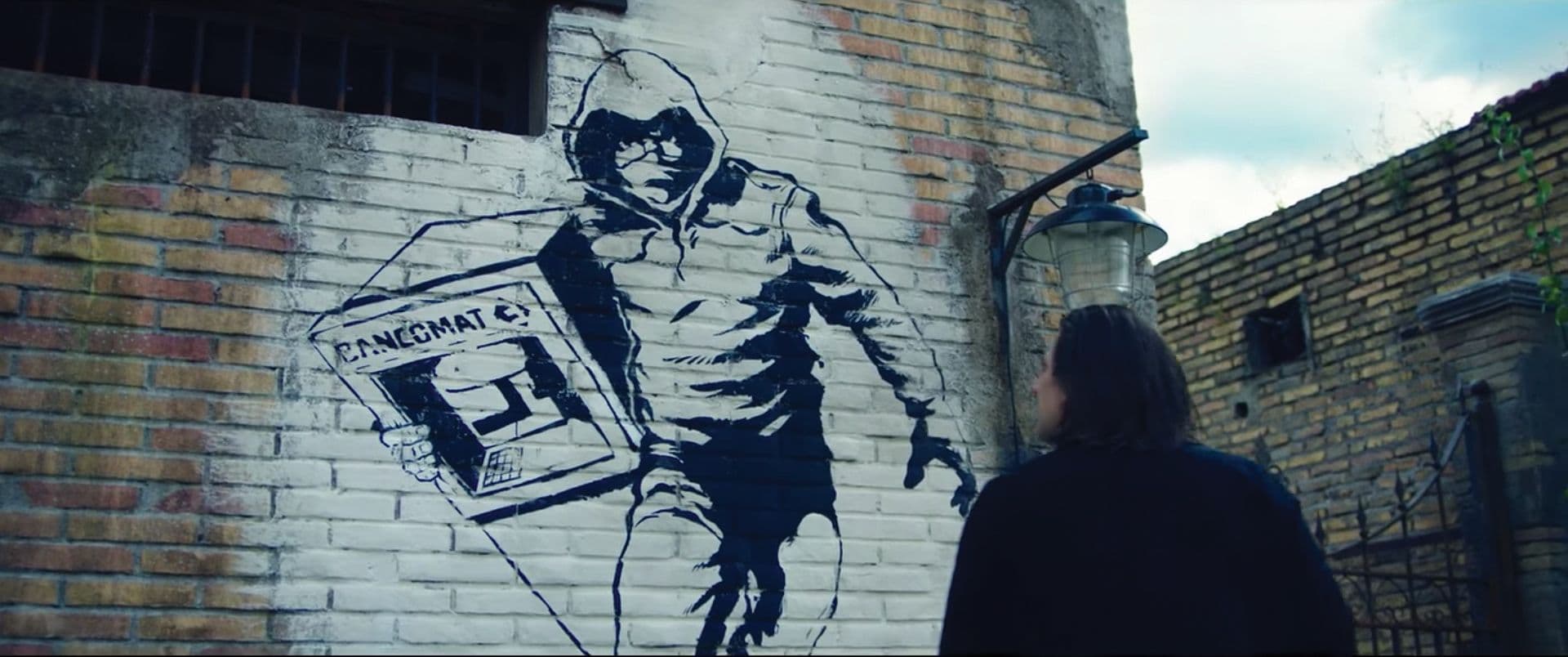
It seems as though Italy, and specifically Rome, is finally taking the plunge and getting in on the superhero act. And it’s all thanks to St. Stephen’s alumnus, film producer and director Gabriele Mainetti ’95. Lo chiamavano Jeeg Robot (They Call Me Jeeg) is Mainetti’s latest film and it is generating plenty of attention on both sides of the pond.
This past April Lo chiamavano Jeeg Robot received sixteen David di Donatello Award nominations – Italy’s version of the Oscars – and walked away with eight, including Best Actor (Claudio Santamaria) and Best Newcomer Director (Gabriele Mainetti). The film received so many awards that at one point the show’s host, comedian Alessandro Cattelan, joked that even the film’s set driver was up for an award!
Five thousand miles away in the city of dreams, Hollywood has also taken notice. Trade magazine Variety described the movie as “throughly enjoyable, surprisingly plangent and gritty.” That it is…and more. In twenty-five words or less, Variety sums up the film’s plot: “They Call Me Jeeg features a two-bit criminal loser who stumbles upon his powers, Toxic Avenger-style (without the deformity), and learns to care about humanity thanks to a traumatized woman who’s convinced he’s the Japanese manga character Steel Jeeg.”
Never heard of Steel Jeeg? Well, he is a wildly popular robot anime character that was created by Japanese manga artists, or cartoonists, Go Nagai and Tatsuya Yasuda, in the mid-1970s. Gabriele grew up watching the series Steel Jeeg, also known as Koutetsu Jeeg, which has long been popular in Italy. It was the superhero story his generation could relate to and one that he would one day transform into a major motion picture.
And what’s not to love about superhero films? While some critics say the public has reached its limit, Hollywood studios have found a wealth of creative material in the likes of Marvel or DC Comics, not to mention that they are a sure box office bet. Just consider the statistics: over the last five years Hollywood has released no fewer than sixty-five films of the superhero genre, thirty of which were animated. And with worldwide box office sales that top the $1 billion mark (Ironman 3 or Captain America: The Winter Soldier), it is no surprise that the current trend shows no signs of slowing down. It is also true that these films are easy to market and they tap into our affinity with cultural icons (albeit of the comic book genre). Advancements in technology have also provided limitless possibilities for how far creativity can be stretched.
Just as the Western was popular in the 60s and 70s, superhero films are having their day in the sun, perhaps because, as one critic wrote, “they hold fundamental truths” and serve a need within us to make the impossible possible.
Another film critic for Forbes suggests our current fascination with the superhero genre is no different from film trends of earlier decades. These films use a familiar storytelling formula that most can identify with because “they are stories about people who become extraordinary due to circumstances that thrust them into amazing situations of great peril and great reward, where heroes are tested and must prove worthy of victory before they can have their grand realizations about themselves and the world, and their final success comes when they merge a vision of greater purpose with a commitment to the things in life they have previously taken for granted.”
This is the classic story arc that Mainetti exploits so well in Jeeg. As soon as petty-criminal Enzo (Santamaria) discovers his “superpowers,” he is tempted to use them for his own gain, but a relationship with a traumatized young woman (Ilena Pastorelli), who is convinced Enzo is Steel Jeeg, the Japanese anime robot character, transforms his view of the world and his place in it. His nemesis, Fabio (Luca Marinelli), is craftily woven in as the film’s wannabe crime kingpin, who is also the perfect representation of our reality-show-obsessed world. A one-time talent-contest runner-up with a hunger for fame and a psychopathic predilection for violence, Fabio is a worthy opponent in this slightly twisted, yet standard good versus evil story.
“Mainetti may be a newcomer,” wrote one Italian critic, “but there’s no trace of this throughout the whole movie.” The film’s setting in the dull, grey periferie or city outskirts are in stark contrast with Rome’s colorful and pictoresque historic center, and serve to draw attention to a social divide and quotidian existence that receive little attention unless, of course, contemporary themes such as Mafia Capitale are being explored, and that, too, has also been cleverly addressed in Jeeg. A detail that one reviewer picked up on, saying that “the real mastery is how he (Mainetti) combines the superhero story with Italian social and political issues.”
Until now no Italian director, not even the Gabriele Salvatore of Il ragazzo invisibile, has succeeded in making an Italian superhero film. Mainetti is the first with a film not only based in Rome, with its strong cultural identity, but is the first to incorporate relevant themes, weaving them together with a Hollywoodized, dysfunctional superhero, all the while adhering to the genre and at the same time leaving space for irony and humor.
Well done, Gabriele! St. Stephen’s, Italy and now, Hollywood, are waiting for Lo chiamavano Jeeg Robot 2!






